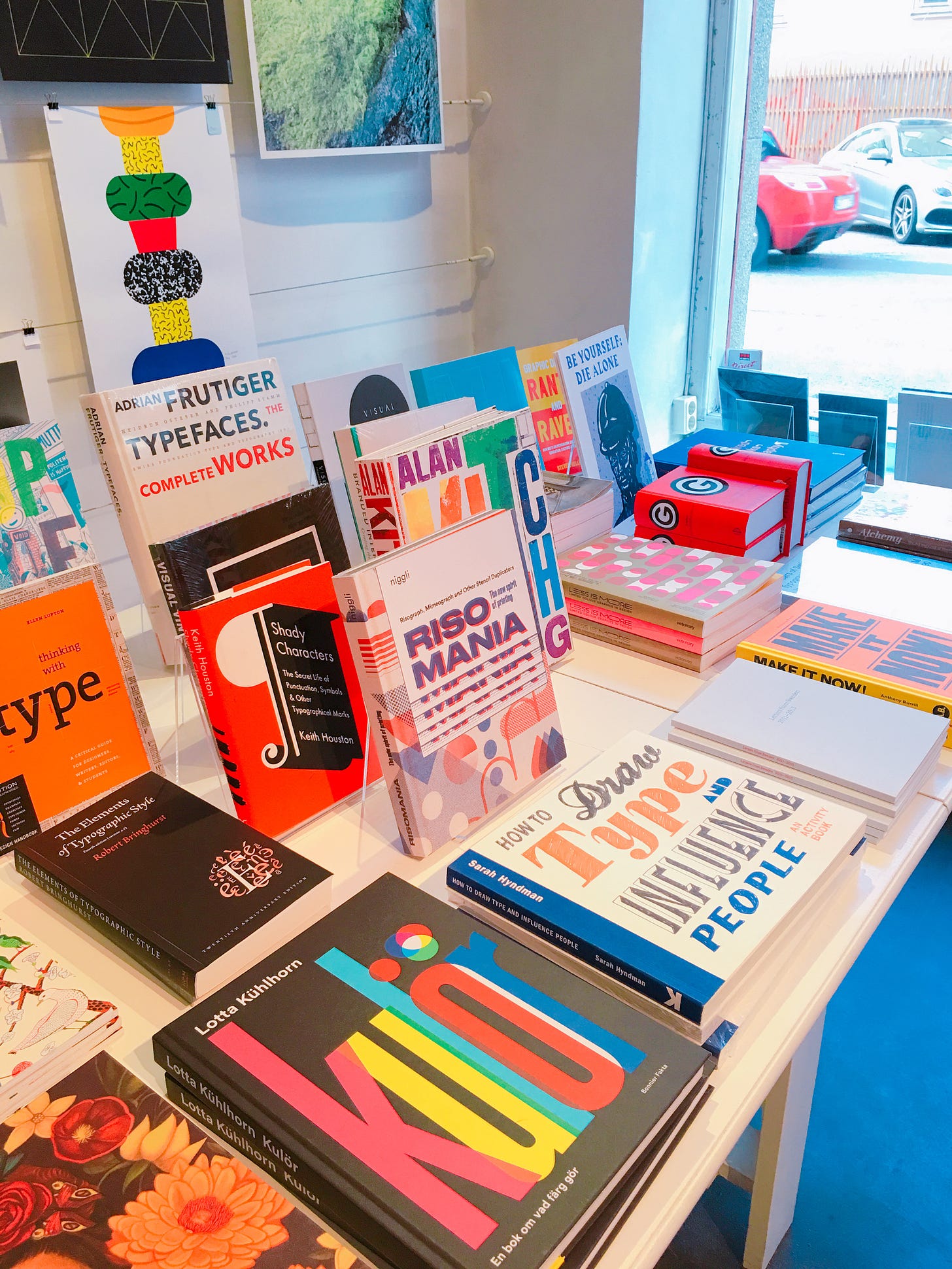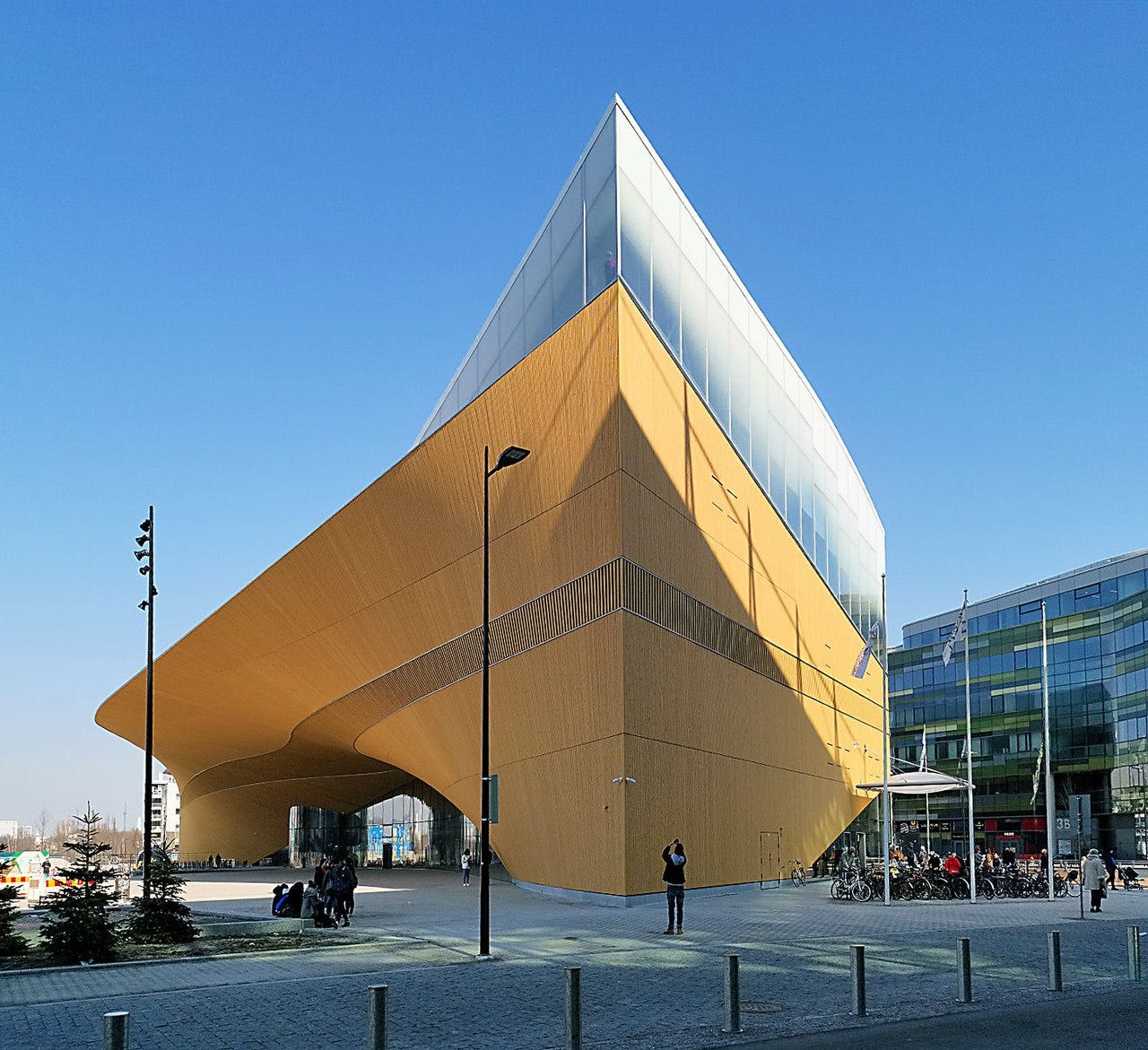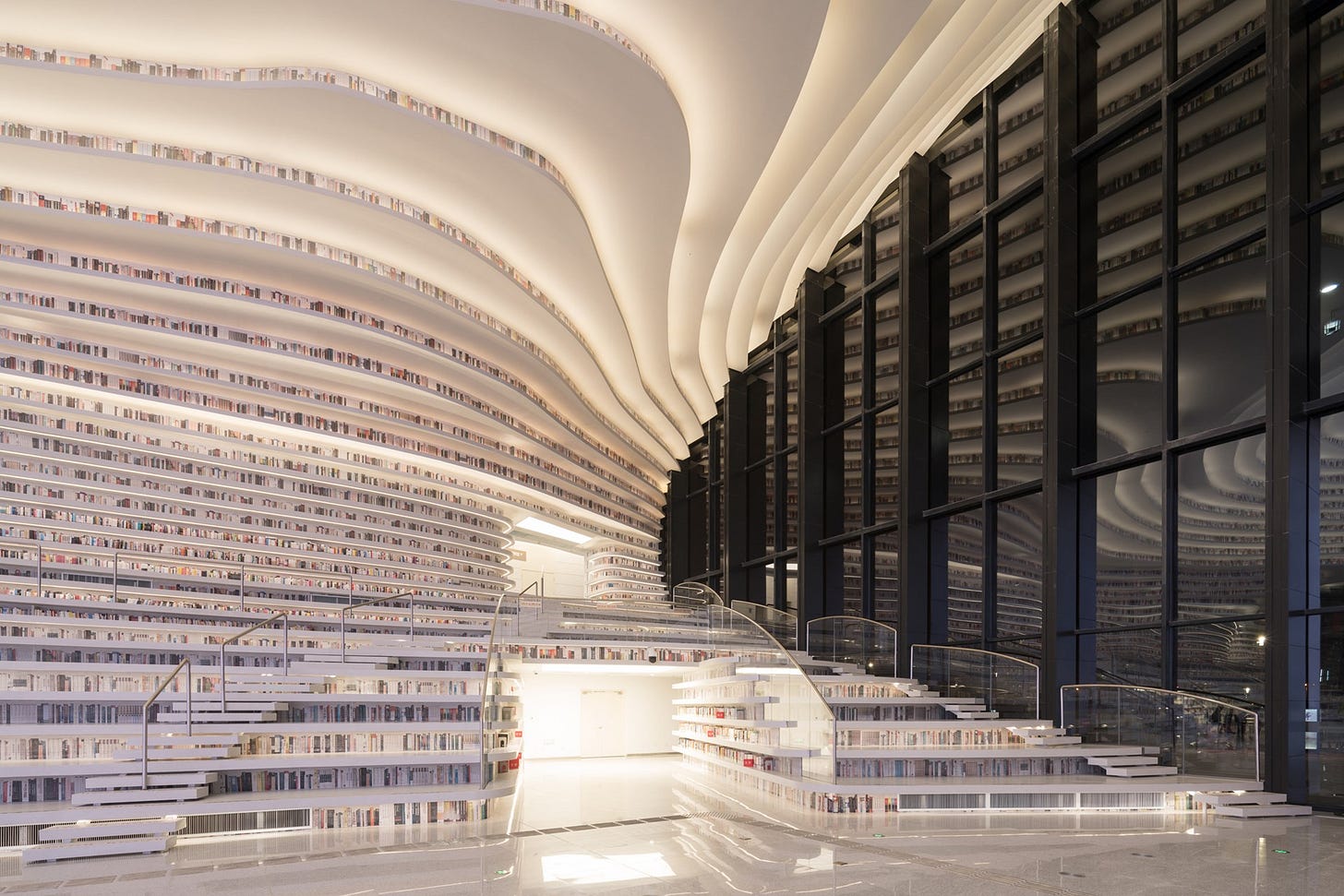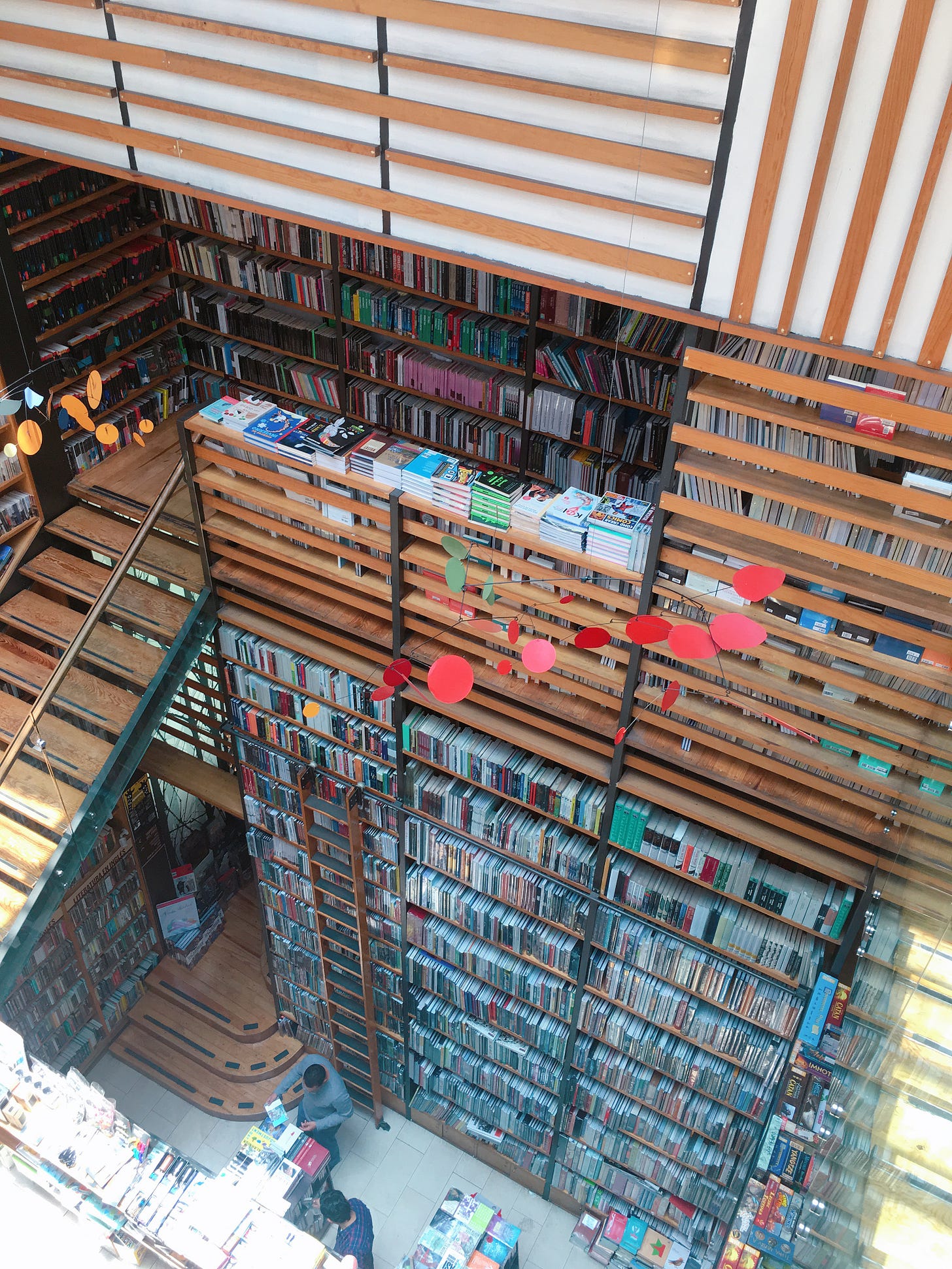The magic of bookstores · Issue no. 4
Bookstores and libraries are a reflection of culture, a city's personality, and an organic way to explore knowledge
Walking to the McNally Jackson bookstore in South Street Seaport has become one of my favorite weekly rituals during the global pandemic. When we were all closed off from other human interaction, I felt like I could be in touch with the world through the avenue of books. Near the entrance, there is a towering floor-to-ceiling display of the current bestselling books in order. Seeing the titles slowly change over time was a visceral way to feel the pulse of the world; a meditation between me, my beloved New York City, and larger society. Whenever I visit a new city, I make it a point to visit their public library and a bookstore or two.
What makes this such a delightful experience? Independent bookstores and public libraries are:
A reflection of the cultural zeitgeist
Embodiment of the city’s personality and vibe
An organic way to explore a topic through human curation
Bookstores and libraries are the ideal third place, a public place that balances out the increased privatization of home and work. Third places allow us to break the never-ending shuttle between home and work, except now, home is where many of us work from during the pandemic.
My friend Patricia Mou wrote about third places in her Wellness Wisdom newsletter here. She and I, along with our friend Jess, are starting a side project reviewing third spaces. You can follow us here.
A reflection of the cultural zeitgeist
Seeing the books on McNally Jackson’s wall change and evolve slowly from week to week was to me a quiet, yet powerful commentary on what was happening in the world. Last June, Ibram X. Kendi's How to Be an Antiracist was at the top, and there it stayed for months. Recently, I’ve been seeing more books by Asian American authors, such as Cathy Park Hong’s Minor Feelings and Ling Ma’s Severance, which has been on the wall for almost a year, a particularly timely novel set in New York City during a plague.
David Chang’s memoir Eat a Peach has been on the wall since it came out last summer, and now his restaurant Momofuku Ssam Bar has moved to the neighborhood just a few steps away. When I was growing up, Joy Luck Club was the only book we read in school by a person like me, and even then, it felt foreign to me. How lucky we are to be living during a renaissance of Asian American authors.
A few weeks ago, I saw a name on the entrance table that I didn’t expect. Anthony Bourdain. Much of World Travel contains his writings from his food travels and supplemented with essays by friends, colleagues, and family. Even after death, his spirit and words live on in New York and the world. He was one of my favorite food, travel and cultural commentators as he had a special way of treating every place he visited with respect, wonder and delight. My soul has felt a small hole since I finished all his media and writing long ago, and seeing this book was an absolute burst of joy.
My favorite discovery from McNally-Jackson has been “The Wisdom of Insecurity: A Message for An Age of Anxiety” by Alan Watts. I chuckled seeing it on the bestseller shelf. The title alone is a brilliant reflection of our times, even though it was published decades ago in 1951.
Bookstores are a reflection of the general intellectual, moral and cultural climate of each era. What books people buy are stronger signals of what topics are important to people, or perhaps what topics are aspirationally important, important enough to buy a book on it that will take hours to read. Writers, bookstores, and libraries, then, have a responsibility to reflect and contribute to this discourse.
I wish I could travel back in time and see what adorned the shelves of bookstores and libraries of previous decades. I wonder what kinds of people also lingered as long as I have in these spaces. What did they think about as they walked the halls of human knowledge? What new ideas were they turned onto that they might not have otherwise encountered?
Embodiment of a city’s personality and vibe
When I visited Stockholm for the first time four years ago, a designer friend insisted I go to Konst-ig, a Swedish art bookseller specializing in art, architecture, design and photography. There was an expansive table dedicated to typography alone! It was like stepping into the slipstream of Swedish design culture.
What is the personality of a city? Look no further than their bookstores and libraries.
On the other side of the world in Taipei, the elegant halls of the Eslite Bookstore tell a different story. For fifteen years, they specialized in books on the humanities and arts, and eventually morphed into a lifestyle concept store combining books, fashion goods, and dining. Eslite is the first in the world to have a bookstore open 24 hours, a nod to Taipei’s vibrant night culture, most famously their night markets.
Beyond the books itself, the architecture and interior design of a bookstore shows a city’s personality as well. Taiwan gets a lot of its design inspiration from Japan and it’s apparent in Eslite’s minimalistic design, with tall ceilings, expansive halls, and warm woods that create an inviting, calming space to wander and sit engrossed in books. The books bask in the warm, soft glow of ambient lighting. Its late founder Robert Wu said, "eslite is not only a bookstore, but also a place to settle the mind and body."

An organic way to explore a topic through human curation
Books help me see connections between topics and people that I might not have thought of. The very selection of books available is opinionated — what is included in the several dozen books in the memoir section of McNally Jackson, of the hundreds of thousands that could be there? What has the book curator or librarian chosen to display on the tables? How do they choose what to showcase and what to show just the spine? I especially love bookstores that are dedicated to a specific genre, like The Mysterious Bookshop in Manhattan, which carries rare and collectible crime and suspense books.
Morioka Shoten in Tokyo is a tiny bookstore. It sells only one title at a time, for six days, before a new title is selected. “A Single Room with a Single Book” stands in stark contrast to the digital world of Amazon, infinitely available titles, and a world clamoring for more, faster. Morioka Shoten has gotten to the essence of human curation.
The organization of books is opinionated as well; genres are the dominant form of categorization, but some bookstores deviate from the norm.
Daunt Books represents London's metropolitan, globalist perspective and arranges their sections geographically. It is a bookshop for travelers, with guides, travel literature, novels set in the destination and historical works concerning the destination all grouped together. What a lovely way to navigate the world while staying in one place.
What can we learn from the magic of bookstores for building products today?
The institution of bookstores and libraries has been the traditional way of organizing knowledge. Why is it that a bookstore doesn't feel as overwhelming as the internet?
Perhaps it's because a bookstore is quiet, both physically and metaphorically. The information is all there in front of you but you're in the driver’s seat, navigating your way through a bookstore or down a library hall. A title can catch your eye, and you can choose to leaf through the pages and sample a few sentences, read the book jacket and the author biography. Or not. The books stand in quiet confidence, unlike the countless digital apps and services clamoring for our attention.
Being surrounded by paper feels warm and cozy. Why is it that we feel safe in a bookstore?
The time I spend in a bookstore or library never feels like wasted time. Online though, that is often not the case. How might we design digital products or content consumption products that always feel like a good use of time?
A curated collection of bookstores by city
Manhattan
McNally Jackson — independent bookstore with a wine & coffee bar in South Street Seaport and a cafe in Soho.
The Morgan Library — museum and research library showcasing fine art, literature and music
New York Public Library — many locations, my favorite is Bryant Park and specifically the Rose Reading Room

Stockholm
Konstig Bokhandel — bookstore dedicated to design, art, photography, architecture, mentioned above
The Stockholm Public Library
Los Angeles
Helsinki
Helsinki Public Library called Oodi
London
Daunt Books - travel literature organized by geography
Taipei
Tianjin
Tianjin Binhai Library
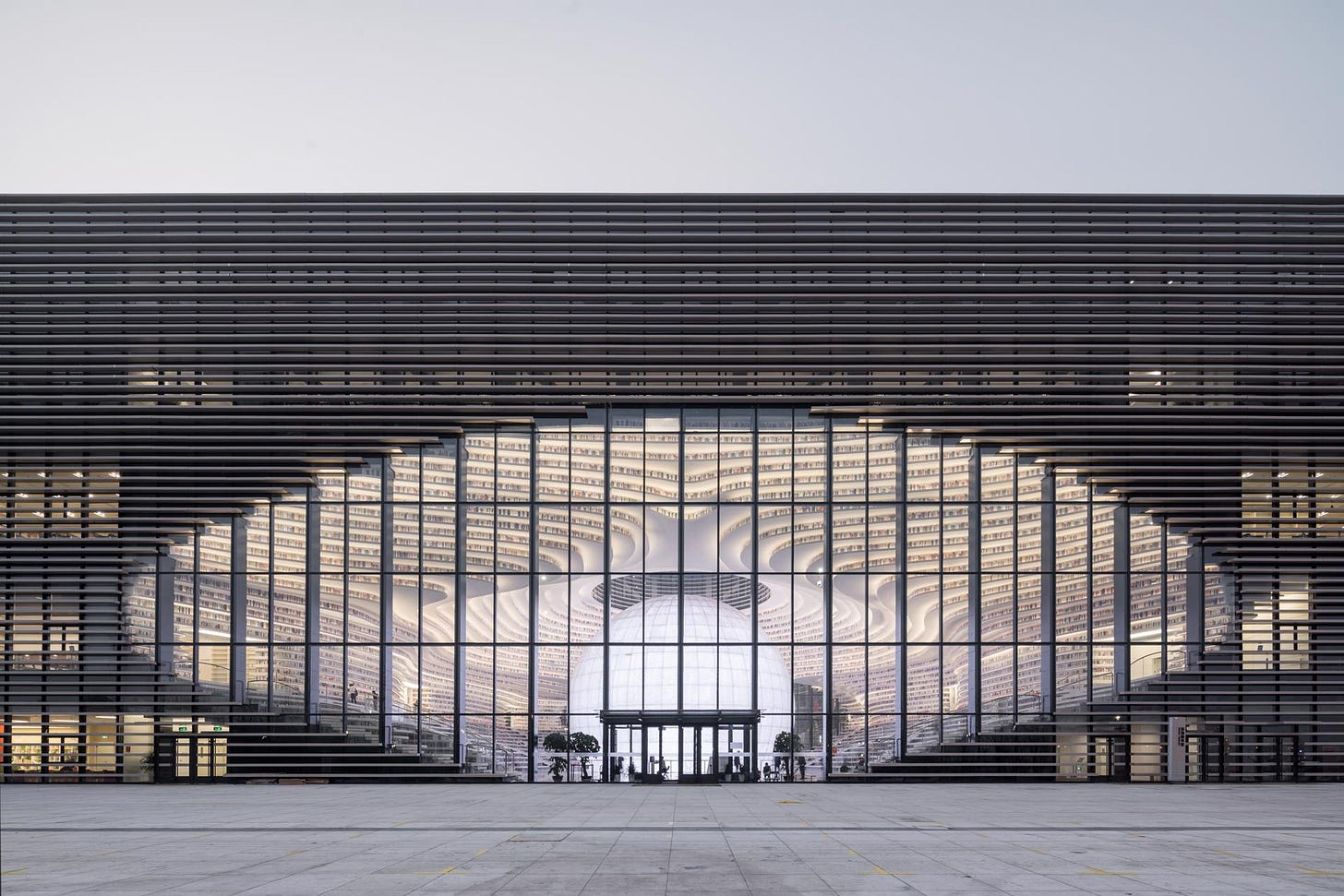
Beijing
Muji Hotel Book Lounge — Muji has a hotel with a book lounge open 24 hours!
Tokyo
Morioka Shoten, a bookstore with a single book available at a time, for six days, mentioned above
Mexico City
I forget the name of this lovely bookstore, because we stumbled upon it while walking through the neighborhood. I was amazed by the open-air layout! We climbed all the way to the rooftop and stumbled upon a jazz concert in a secret room on the roof. Magical experience.
For more, Architectural Digest has a gallery of some of the world’s most beautiful bookstores, from Rio to Santorini to Chengdu.
What are your favorite bookstores and libraries? What makes bookstores magical to you?
Thanks for reading,
Inga



